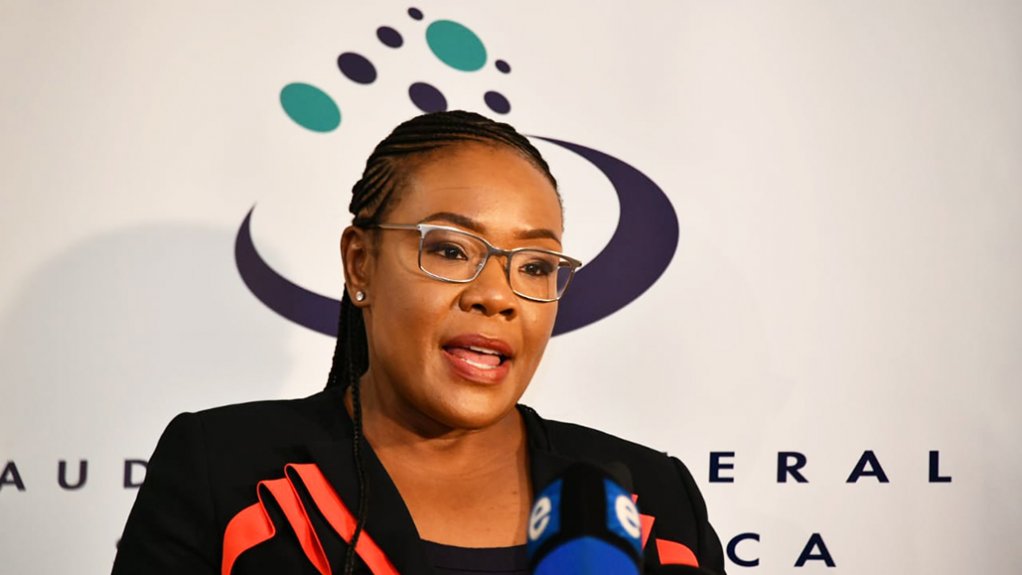Only one of South Africa's 19 major State-owned enterprises received a clean audit in the past year, Auditor-General Tsakani Maluleke has said.
Maluleke on Wednesday tabled the audit outcomes for national and provincial government for the year to end March 2023.
She said that while there was a trend of improvement for smaller parastatals and some government departments, SA's key State-owned enterprises (SOEs) again underperformed.
"Those auditees with the greatest impact on the lives of South Africans and on government finances, which we refer to as 'high-impact auditees', are lagging behind on financial and performance management disciplines," she said.
The AG said her office had also identified a trend of some accounting officers excluding embarrassing indicators from their reports for fear that she would make findings against them.
For example, she said that four provincial education departments excluded the indicator of how many Grade 6 and 9 learners had received maths and English first additional language textbooks. This meant reduced transparency and accountability.
Sakhumzi Somyo, chair of the Standing Committee on the Auditor-General, said deliberately hiding embarrassing indicators from the AG should be classed as a criminal offence.
Of the 19 major SOEs that are supposed to be run like businesses and make a profit, only one - the Development Bank of Southern Africa (DBSA) - received a clean audit. There was "absolutely no excuse" that no other major SOE had joined the DBSA on the clean audit list, said the AG.
Ten received unqualified audits with findings, two received qualified audits with findings, and another two – the SABC and SA Post Office – received disclaimers. A disclaimed audit means the AG was provided with insufficient evidence to make an opinion.
Four entities – Alexkor, Denel, SAA and Eskom – had outstanding audits as they did not submit the financial documents in time.
While there was little to celebrate for SA’s major SOEs, the AG said smaller public entities and government departments did better.
Of the 418 entities that her office audited (a handful are also audited by private sector), 147 received clean audits, compared to 126 in 2021/22.
But these 147 auditees only manage 16% of the R3.1-trillion expenditure budget in national and provincial government, she noted.
Irregular expenditure* disclosed in 2022/23, meanwhile, totalled R63.4-billion.
And Maluleke said the true amount may be higher.
"These amounts might be incomplete, as auditees no longer have to include irregular expenditure incurred in prior years or the closing balance of irregular expenditure in their financial statements," she said.
The AG also told MPs that the Unemployment Insurance Fund (UIF), which is at the centre of a R5-billion scandal, had not submitted financial statements, meaning she could not audit it.
Last month, Business Unity SA called for the fund to be put under immediate administration due to "systemic dysfunction", corruption, and ineptitude threatening workers' benefits.
Among SA's provinces, meanwhile, the AG said her office had noted a clear, if slow, improvement in audit outcomes.
The best performing was again the Western Cape, which received 18 clean audits. The North West was the worst-performing province, which only received a single clean audit.
*According to the AG, irregular expenditure is expenditure that was not incurred in the manner prescribed by legislation, and does not necessarily mean that money was wasted or that fraud was committed.
EMAIL THIS ARTICLE SAVE THIS ARTICLE
To subscribe email subscriptions@creamermedia.co.za or click here
To advertise email advertising@creamermedia.co.za or click here











